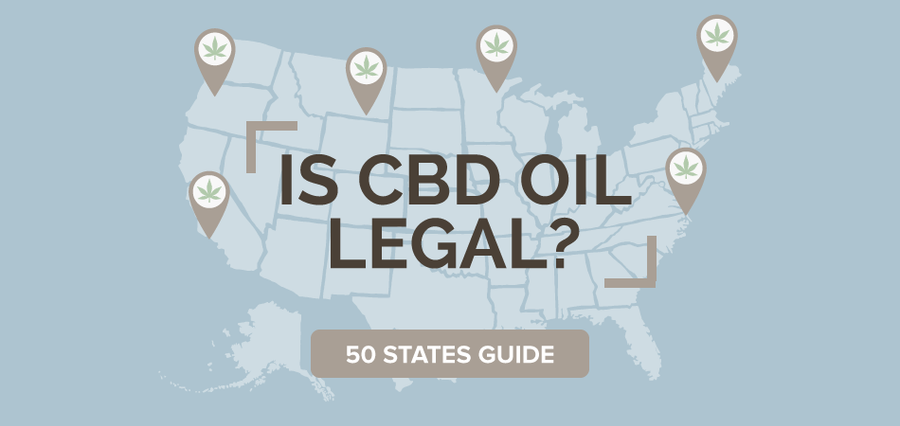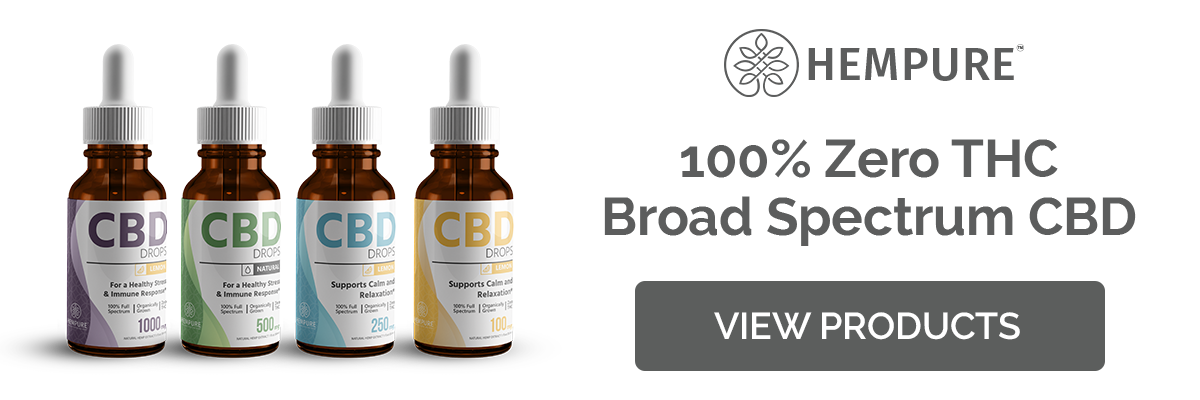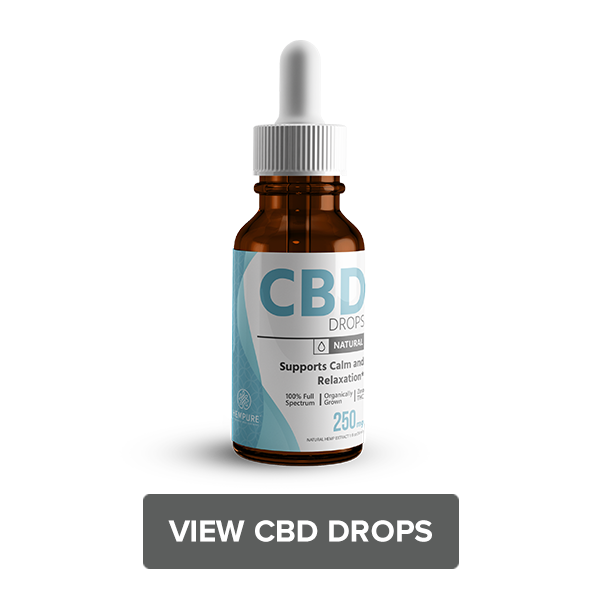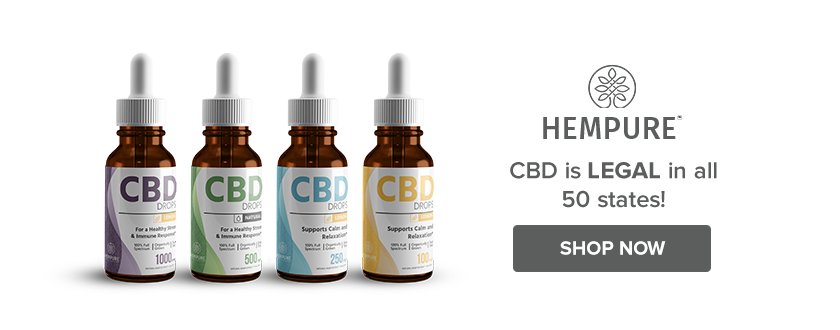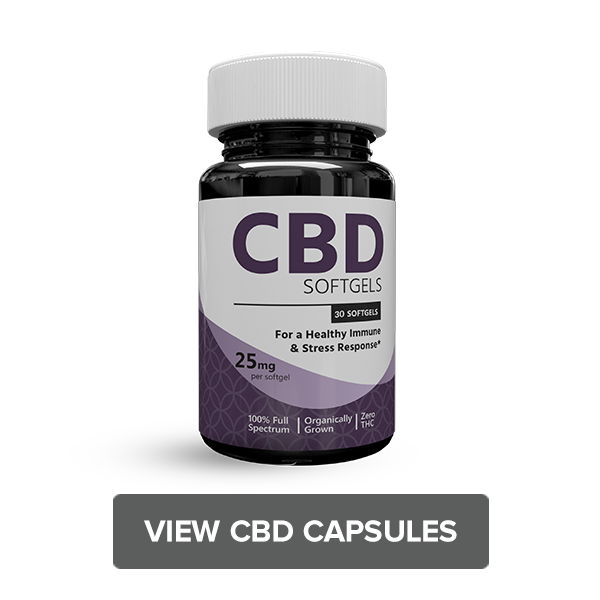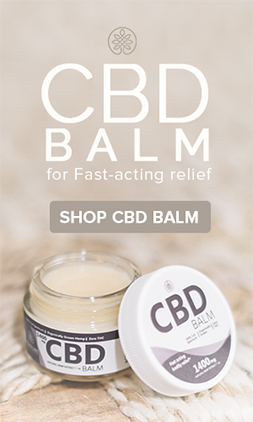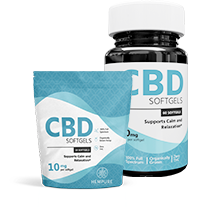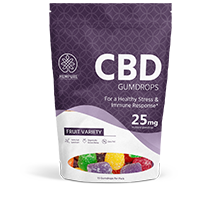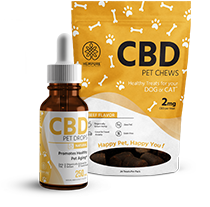Is CBD Oil Legal in all 50 states?
Sabina King on Jun 18th 2019
Thanks to the 2018 Farm Bill, hemp is legal in all fifty states. However, the legality of CBD is still confusing for many. We dug into the laws of each state and even hired a group of lawyers to help us understand the legal landscape.
Here’s what you need to know
The legality depends on the source of the CBD.
While hemp-derived CBD is legal in all 50 states, ‘marijuana’-derived CBD is not legal federally.
Both marijuana and hemp are members of the cannabis family making them similar in many ways. The government classifies hemp as any plant of the cannabis family that contains less than 0.3% THC. It classifies “marijuana” as any plant of the cannabis family that contains greater than 0.3% THC.
“Marijuana” cannabis plants have a low percentage of CBD than hemp plants. That's why most CBD products use CBD from hemp not marijuana. Because marijuana has higher concentration of THC, it's not an ideal choice for producing CBD products. Using marijuana plants would require extracting some of the THC to make CBD within the legal limits.
Hemp cannabis plant have a high amount of CBD and low THC, making them the most efficient plant for CBD processing.
So the bottom line here is, if your CBD comes from hemp, it is legal.1 CBD made from "marijuana" with high levels of THC, is only legal if your state legalized marijuana.
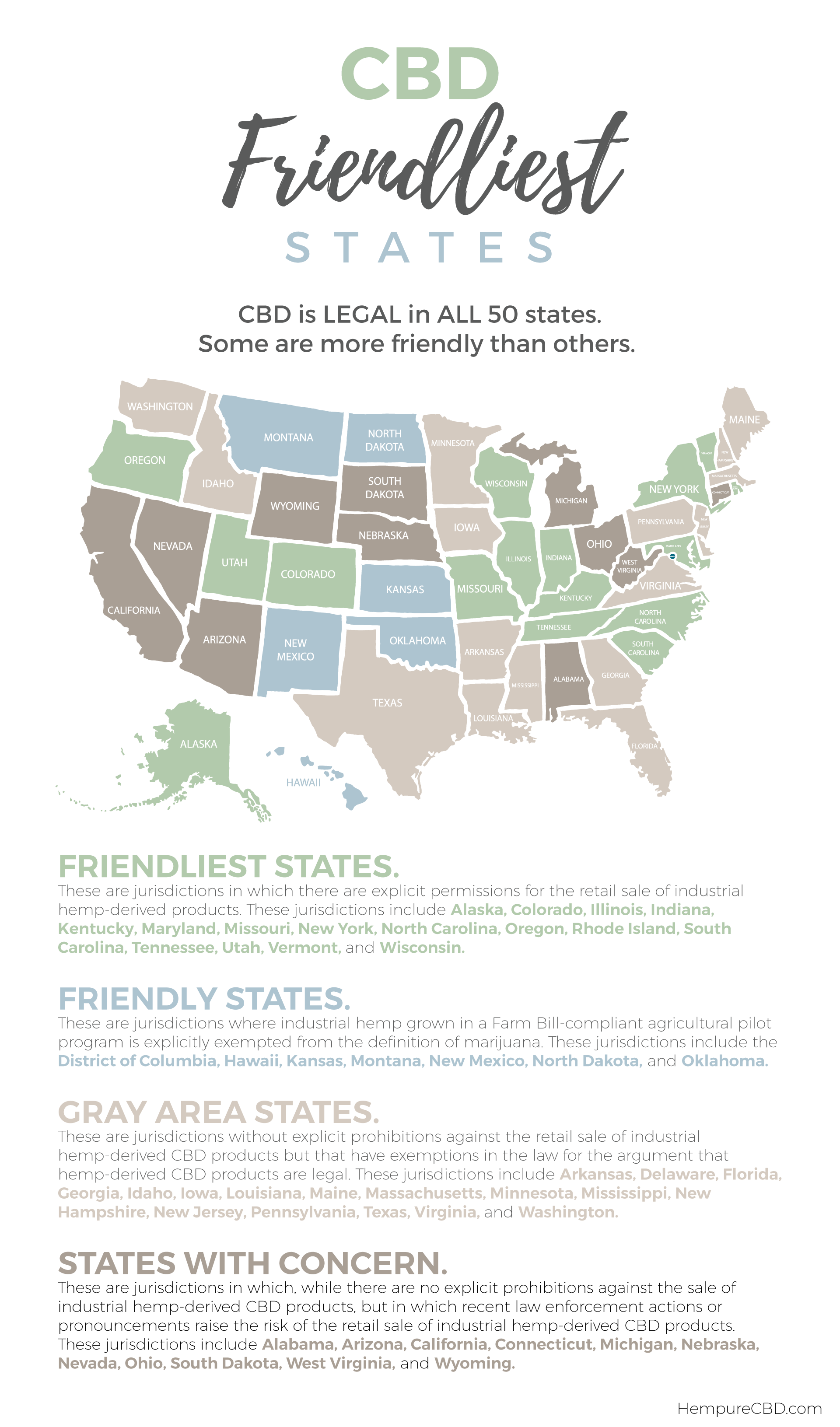 Where is CBD illegal?
Where is CBD illegal?
Thanks to the passing of the 2018 Farm Bill, zero THC CBD is not illegal in any state in the USA. That's right; according to federal law, it is legal in all 50 states. That said, since the change in law is relatively new, some states might not fully embrace CBD.This should change with the new bill, however, it may take time. Below we outline four different jurisdictional categories based on pre-2018 Farm Bill practices.
States can be grouped into four jurisdictional categories.
Friendliest States.
These jurisdictions have explicit laws allowing retailers to sell industrial hemp-derived products.
These jurisdictions include: Alaska, Colorado, Illinois, Indiana, Oklahoma, Kentucky, Maryland, Missouri, New York, North Carolina, Oregon, Rhode Island, South Carolina, Tennessee, Utah, Texas, Vermont, and Wisconsin.
Friendly States.
In these jurisdictions industrial hemp grown in a Farm Bill-compliant agricultural pilot program is explicitly exempted from the definition of marijuana.
These jurisdictions include: the District of Columbia, Hawaii, Kansas, Montana, New Mexico, and North Dakota.
Gray Area States.
These jurisdictions are without explicit prohibitions against the retail sale of industrial hemp-derived CBD products but that have exemptions in the law for the argument that hemp-derived CBD products are legal.
These jurisdictions include: Arkansas, Delaware, Florida, Connecticut, Georgia, Idaho, Iowa, Louisiana, Maine, Massachusetts, Nebraska, Minnesota, Mississippi, New Hampshire, New Jersey, Pennsylvania, Virginia, and Washington.
States with Concern.
These jurisdictions have no explicit prohibitions against the sale of industrial hemp-derived CBD products. However, recent law enforcement actions or pronouncements raise the risk of the retail sale of industrial hemp-derived CBD products.
These jurisdictions include Alabama, Arizona, California, Michigan, Nevada, Ohio, South Dakota, West Virginia, and Wyoming.
What are the specific rules in your state?
State-wise Updates
As of June 2019, states have begun amending legislation regarding hemp and CBD. Here are the highlights:
CBD in Connecticut
Hemp and the sale of hemp (in accordance with 2018 Farm Bill) is now legal. Hemp has been removed from the list of cannabis products, but CBD appears to remain a controlled substance.
CBD in Florida
Legislation has been passed to legalise hemp and hemp products such as CBD procured in accordance with the 2018 Farm Bill. The Governor is expected to sign the legislation soon.
CBD in Georgia
Georgia has established a hemp growing program, and removed hemp from the list of scheduled substances. However, the Georgia Agriculture Commissioner has stated that including CBD in food or dietary supplements is unlawful - consistent with the FDA approach.
CBD in Hawaii
The Department of Health clarified that the “interstate sale and distribution of cannabis-derived products including products containing CBD is illegal” if sold without a prescription and outside a licensed medical cannabis dispensary. Adding CBD to food or supplements will be regulated in a manner consistent with the FDA approach.
CBD in Iowa
Iowa has established a hemp growing program. Hemp grown in accordance with the 2018 Farm Bill is no longer in the definition of marijuana. Retail sale of hemp products is legal, but Governor Kim Reynolds states that the bill does not legalize the retail sale of CBD. Similar to Georgia and Hawaii, Iowa will approach CBD in a manner consistent with the FDA.
CBD in Nebraska
Nebraska has expanded its hemp program and hemp and hemp products are no longer on the list of controlled substances. That being said, there are still no explicit protections for the retail sale of CBD.
CBD in New Jersey
Legislation is currently being considered that would protect the retail sale of hemp-derived CBD.
CBD in Oklahoma
Approved the retail sale of hemp-derived CBD! CBD product labels must share the CBD's country of origin and whether the CBD is natural or synthetic.
CBD in Texas
A recently passed hemp growth program will protect hemp products like CBD. The legislation also covers labeling and retailer registration requirements.
CBD in Virginia
Virginia’s food safety regulations prohibit the introduction in interstate commerce of any food or dietary supplement containing CBD, including hemp-derived CBD.
Concluding Thoughts: Is CBD Legal in 2019?
- Marijuana derived CBD is not legal federally.
- The government classifies hemp as any plant of the cannabis family that contains less than 0.3% THC.
- It classifies “marijuana” as any plant of the cannabis family that contains greater than 0.3% THC.
- You need to check your specific state for any restrictions
Federal law permissions for activities involving industrial hemp are clear. However, the Farm Bill, and other federal laws on industrial hemp, do not preempt state law.
Just as there are hundreds of municipalities in the United States that prohibit alcohol sales nearly a century after Prohibition’s repeal, local and state laws may still restrict the sale of industrial hemp products even where federal law is clearly permissive.
Some states continue to view CBD that comes from marijuana as being no different than marijuana itself. The government classifies any plant of the cannabis family that contains more than 0.3% THC to be marijuana.
Bottom line, it is legal to purchase and consume hemp-derived-CBD in all 50 states.
Keep checking back in this space for updates as there is currently a bill going through Congress right now that could change the way the government views both hemp and marijuana.
The 2018 Farm Bill holds the promise to clear up many of the misconceptions and confusing elements surrounding CBD. If you're interested in learning more about how we came to have these regulations of hemp read Chapter 2 of our CBD textbook on The History of CBD.
SOURCES:
- United States House of Representatives, H.R. 2642, Agricultural Act of 2014, 2014 Dec, https://www.ncbi.nlm.nih.gov/pmc/articles/PMC3736954/








